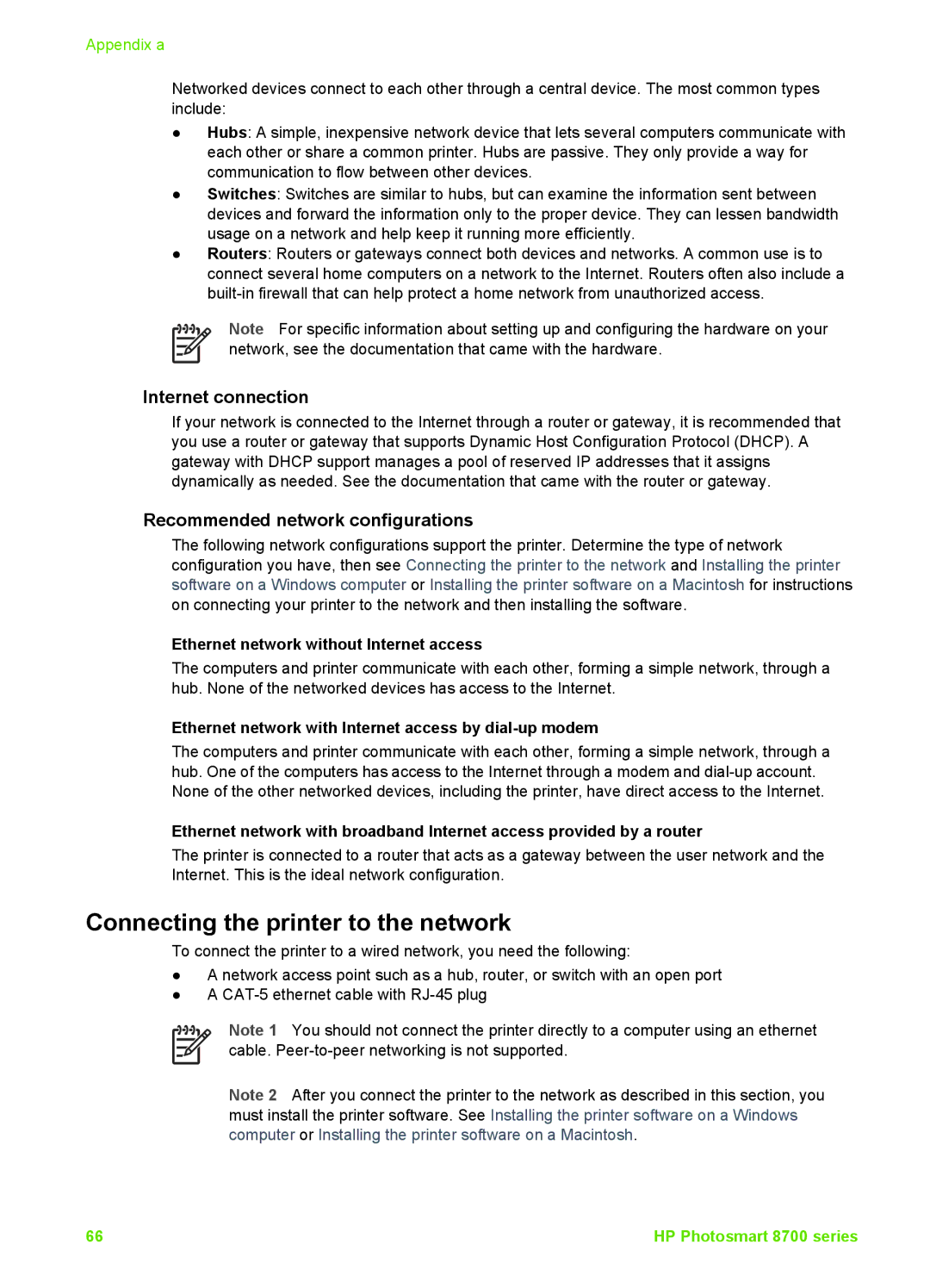Appendix a
Networked devices connect to each other through a central device. The most common types include:
●Hubs: A simple, inexpensive network device that lets several computers communicate with each other or share a common printer. Hubs are passive. They only provide a way for communication to flow between other devices.
●Switches: Switches are similar to hubs, but can examine the information sent between devices and forward the information only to the proper device. They can lessen bandwidth usage on a network and help keep it running more efficiently.
●Routers: Routers or gateways connect both devices and networks. A common use is to connect several home computers on a network to the Internet. Routers often also include a
Note For specific information about setting up and configuring the hardware on your network, see the documentation that came with the hardware.
Internet connection
If your network is connected to the Internet through a router or gateway, it is recommended that you use a router or gateway that supports Dynamic Host Configuration Protocol (DHCP). A gateway with DHCP support manages a pool of reserved IP addresses that it assigns dynamically as needed. See the documentation that came with the router or gateway.
Recommended network configurations
The following network configurations support the printer. Determine the type of network configuration you have, then see Connecting the printer to the network and Installing the printer software on a Windows computer or Installing the printer software on a Macintosh for instructions on connecting your printer to the network and then installing the software.
Ethernet network without Internet access
The computers and printer communicate with each other, forming a simple network, through a hub. None of the networked devices has access to the Internet.
Ethernet network with Internet access by dial-up modem
The computers and printer communicate with each other, forming a simple network, through a hub. One of the computers has access to the Internet through a modem and
Ethernet network with broadband Internet access provided by a router
The printer is connected to a router that acts as a gateway between the user network and the Internet. This is the ideal network configuration.
Connecting the printer to the network
To connect the printer to a wired network, you need the following:
●A network access point such as a hub, router, or switch with an open port
●A
Note 1 You should not connect the printer directly to a computer using an ethernet cable.
Note 2 After you connect the printer to the network as described in this section, you must install the printer software. See Installing the printer software on a Windows computer or Installing the printer software on a Macintosh.
66 | HP Photosmart 8700 series |
